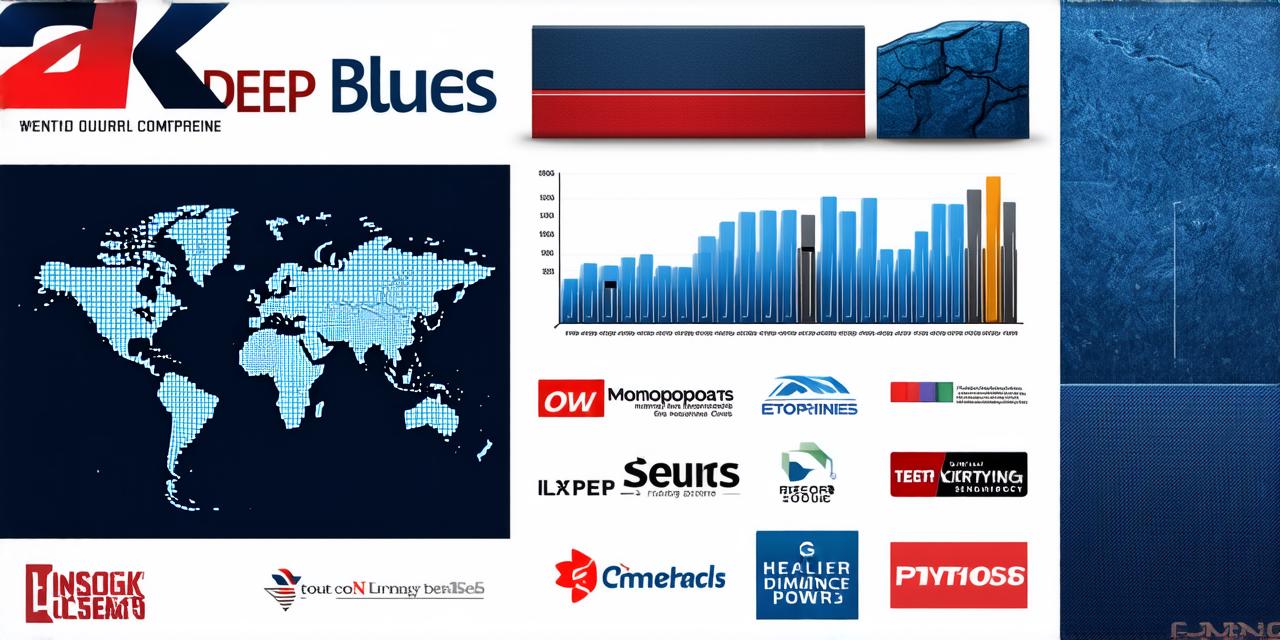As technology continues to advance and industries become more consolidated, it’s becoming increasingly clear that a select few companies have an outsized amount of control over our lives. These companies are often referred to as “monopolies,” but the term is somewhat misleading – they don’t just have control over one particular market or product.
Instead, they have a stranglehold on nearly every aspect of our daily lives, from the devices we use to the food we eat to the entertainment we consume.
In this article, we’ll take a closer look at some of the companies that are currently dominating the global marketplace, and explore the ways in which they’re shaping our world. We’ll also discuss the potential dangers of this level of consolidation, and what can be done to ensure that our society remains diverse and competitive.
Apple
Perhaps the most well-known company on this list, Apple is one of the largest and most successful tech companies in the world. They have a stranglehold on nearly every aspect of the tech industry, with products ranging from smartphones and laptops to iPads and iPhones.
This has made them incredibly wealthy, with a market capitalization of over $2 trillion. But it’s also made it difficult for other companies to compete, as Apple has done everything from patented certain features to lock users into their ecosystem.
Another tech giant, Google is one of the most important companies in the world when it comes to search engines and online advertising. They own a number of different companies, including YouTube (for video), Gmail (for email), and Chrome (for web browsing). This has made them incredibly powerful, with a market capitalization of over $1 trillion. But it’s also led to concerns about privacy and the dominance of their search engine over others.
Amazon
One of the largest e-commerce companies in the world, Amazon has a stranglehold on the online retail space. They sell everything from books and electronics to groceries and clothing, and they have a market capitalization of over $1.5 trillion. But this dominance has also led to concerns about worker conditions and the potential for anti-competitive practices.
Perhaps one of the most controversial companies on this list, Facebook is one of the largest social media platforms in the world. They have a market capitalization of over $800 billion, and they own a number of different companies, including WhatsApp (for messaging) and Instagram (for photos). But their dominance has also led to concerns about fake news, privacy, and the potential for political influence.
Microsoft
Another tech giant, Microsoft is one of the largest software companies in the world. They have a market capitalization of over $1 trillion, and they own a number of different products, including Windows (for operating systems), Office (for productivity tools), and Xbox (for gaming). But their dominance has also led to concerns about monopolistic practices and anti-competition.
Alphabet
The parent company of Google, Alphabet is one of the largest and most successful tech companies in the world. They have a market capitalization of over $1 trillion, and they own a number of different companies, including YouTube (for video), Gmail (for email), and Chrome (for web browsing). But their dominance has also led to concerns about privacy and the potential for anti-competitive practices.
Tesla
One of the most well-known electric car companies in the world, Tesla has a stranglehold on the electric vehicle market. They have a market capitalization of over $600 billion, and they own a number of different products, including the Model S (for luxury cars) and the Tesla Model 3 (for affordable cars). But their dominance has also led to concerns about safety and reliability.
Coca-Cola
One of the largest beverage companies in the world, Coca-Cola is a global powerhouse with a market capitalization of over $200 billion.


